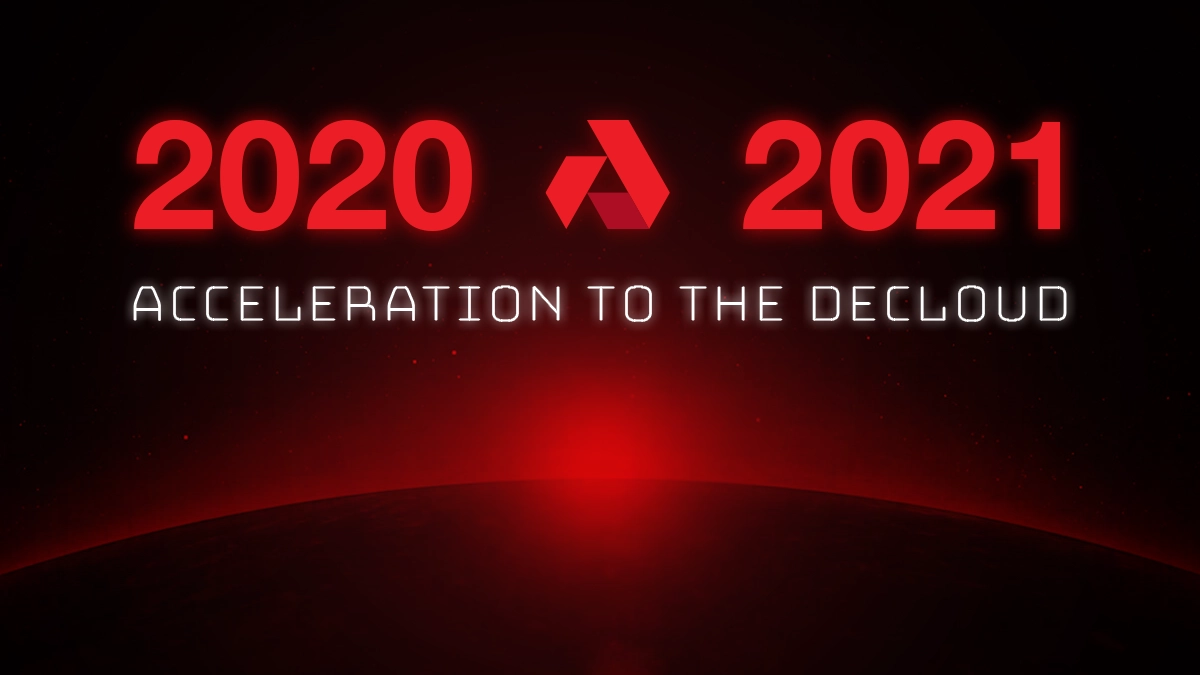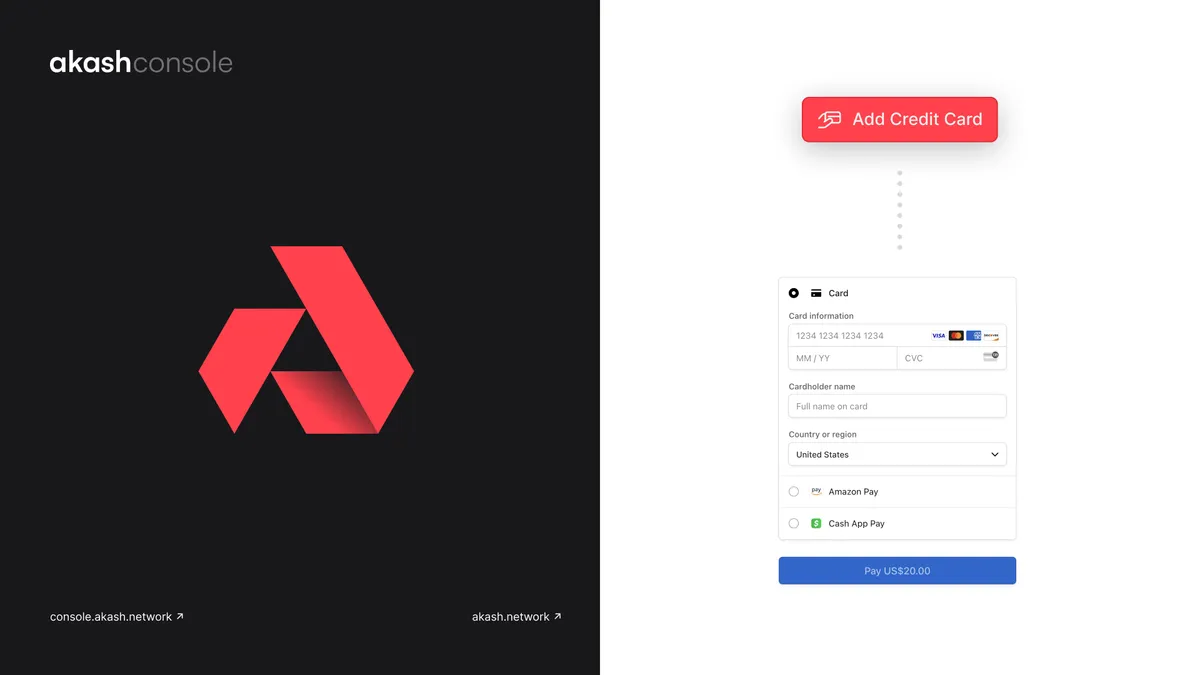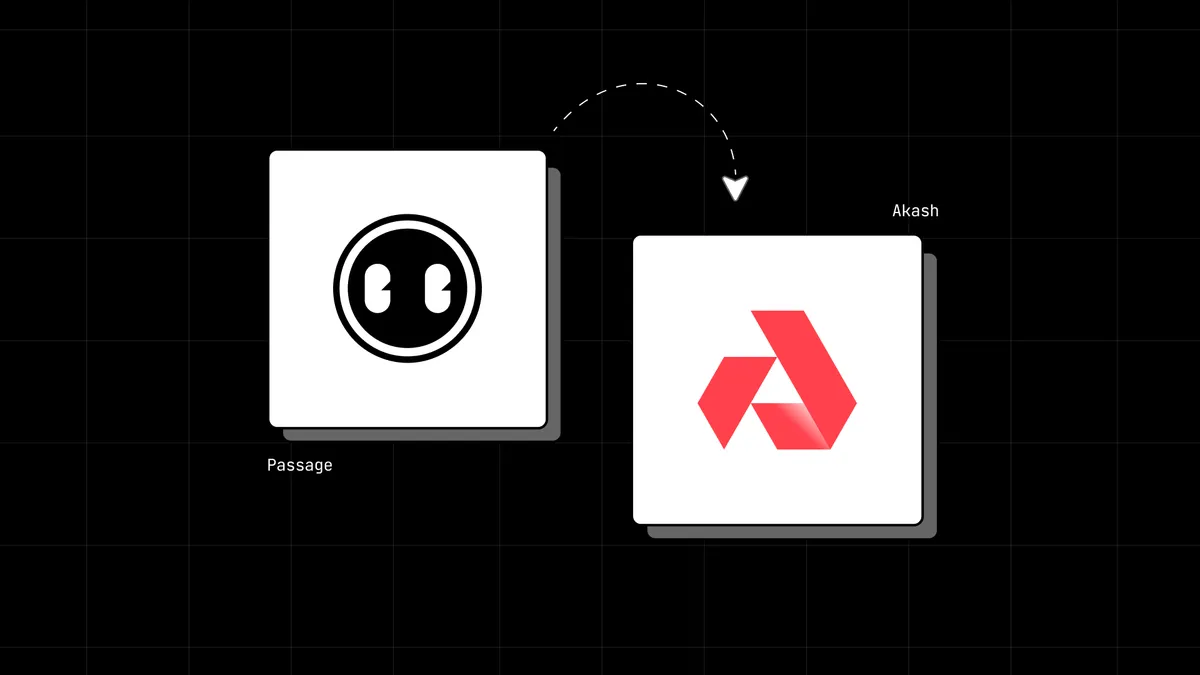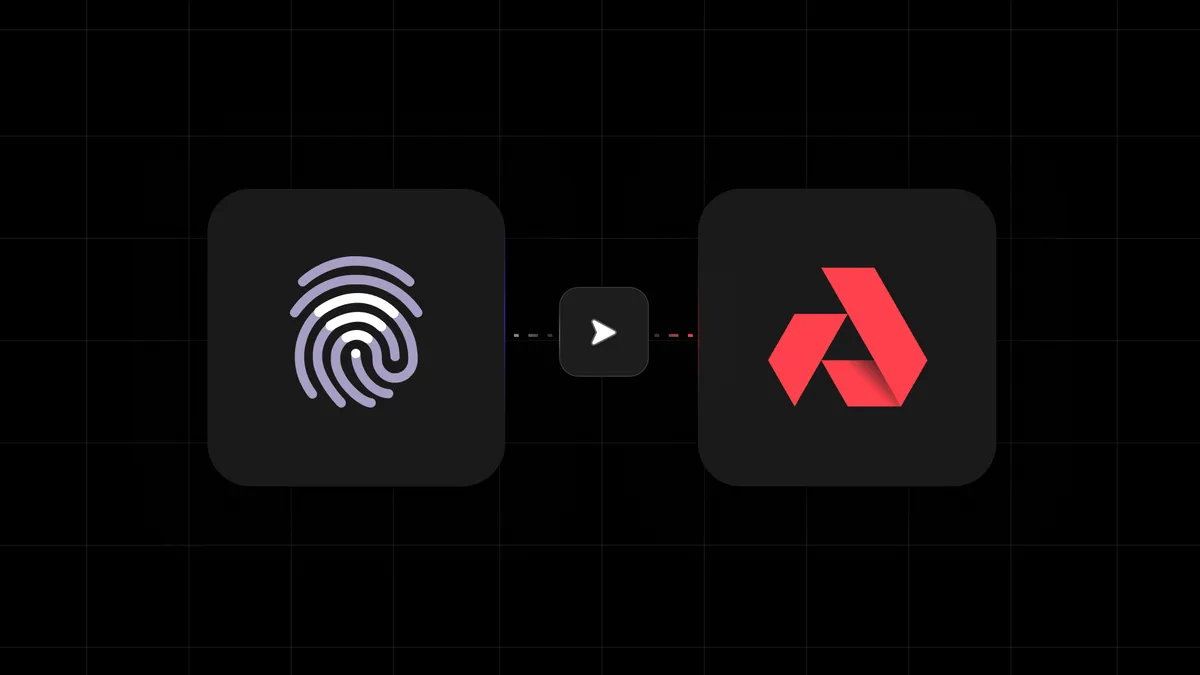
In 2020, the pandemic shifted more of our work and personal lives online, accelerating explosive demand for cloud computing and services, projected to be a $370 billion market by 2022 (IDG 2019).
We saw how developers and organizations had few options beyond the four CSPs (Amazon Web Services, Google Cloud, Microsoft Azure, and Alibaba Cloud) who dominate with 71% market share.
We witnessed how much cloud access and costs constrained growth and scale for startups and organizations weathering the difficulties of the past year. In the race to find a vaccine and treatments for COVID-19, access to cloud computing has been critical, not just for startups, but also for academic institutions, researchers, and clinicians.
My cofounder and CTO Adam Bozanich and I started Akash Network to enable developers and organizations around the world to have greater access, freedom, and flexibility to build and grow. As open source developers, we wanted to create an alternative to the pricing inefficiency, inflexibility, and anti-competitive practices of centralized cloud service providers.
The pandemic has been a humbling experience that not only made us revisit our priorities, but strengthened our focus and commitment to materializing The Unstoppable Cloud, the first viable alternative to centralized cloud providers like Amazon Web Services, Google Cloud, and Microsoft Azure.
More than ever, we need a decentralized, permissionless, and open cloud where people become participants in their future.
Progress to our vision is a marathon and not a sprint, and our success depends on a team that relentlessly ships, and the continued support of Akashians around the world.
I’m proud to share 2020 milestones that we achieved across our product, partnerships, promotions, and people, that accelerate us to the DeCloud in 2021.
Highlights from 2020 in the Cloud
_____
PRODUCT
2020 was a landmark year for our product milestones. In Q1 2020, we migrated to Cosmos SDK and in the process, we reduced our codebase by a massive 150,000 lines. In order to provide a framework for others to create and run their own testnets, we captured our learnings in the Decentralized Cloud Standards.
We also evolved our Akash Network Token Economic Model. We introduced two additional powerful drivers for growth and income generation in the ecosystem–the allocation of subsidies, in the form of a Subsidy Pool and the distribution of a network dividend from a portion of the lease fees, Take Income.

In Q2 2020, we launched The Akashian Challenge Incentivized Testnet, one of the largest and most ambitious testnets in the decentralized ecosystem. During Phase 1, our testnet withstood an AWS outage that brought down the centralized cloud (and internet). It also weathered a massive zero fee transaction attack. Both the AWS outage and the attack showcased the resilience of our decentralized platform.
In the initial phases of The Akashian Challenge, we tested governance and voting, and improved the process for network upgrades to strengthen our platform. These explorations gave us critical insights on how to build a healthy and vital community for growth, and led to the successful launch of our Mainnet 1 with a full 64-validator set.

In The Akashian Challenge Phase 3, we integrated performance enhancements from Cosmos SDK v0.40, and tested Akash DeCloud’s deployment platform. With 500,000 Akash Token (AKT) in rewards and hundreds of participants joining from around the world, The Akashian Challenge Phase 3: Developer Operations included guided and open ended challenges.
Phase 3 testnet participation, deployments, and learnings, exceeded our expectations:
-
3800+ applications deployed
-
500+ developers
-
149 registered validators
During Phase 3, Forbole deployed their Big Dipper block explorer on Akash DeCloud, making it the first instance of a prominent block explorer to migrate from centralized cloud to decentralized cloud.
Serum DEX UI became the first instance a major DeFi project is hosted on the DeCloud. You can check out the full Awesome Akash list for a complete listing of the apps that were deployed in Phase 3.
In the middle of all this action, Akash surpassed 1,000,000 blocks.
Through running three phases of The Akashian Challenge, we’ve been able to gather data, identify critical issues, and ensure our network’s scalability, security, and usability before launching our DeCloud: Mainnet 2.

Leveraging Akash’s proprietary cloud and blockchain technologies, developed over five years, Supermini will be manufactured and launched in the United States with premium materials and powerful processors.
We progressed design, technical specifications, and production on Supermini. We worked with design duo Guillermo Sanchez del Corral and Rafael Saenz of debuti, and industrial designer Sungbum Park, to come up with Supermini’s distinctive chassis and infinity mirror design.
We launched a test online pre-order campaign and sold out within 3 weeks of the campaign launch. Production is underway for a limited launch later this year.
AKT Token Initial Exchange Offering & Liquidity
In Q3, we launched Akash Mainnet 1 and held the Akash Token (AKT) IEO on BitMax, one of the world’s top exchanges. Mainnet 1 was the beginning of Akash DeCloud and network governance, enabling staking and governance operations including the ability to delegate to validators and vote on governance proposals.
Shortly after, we announced a second exchange listing on BitMart, a premier global digital asset platform and ranked among the top crypto exchanges on CoinMarketCap!
As the first Akash exchange partner to enable residents of the United States to access AKT, BitMart enabled more Akashians around the world access to AKT, and to AKT staking rewards.
PARTNERSHIPS
Our goal is to provide developers with increased access to decentralized services. Towards this end, we announced that we were partnering with Solana to bring web-scale smart contracts to Akash DeCloud.
Akash users will be able to run secure and scalable smart contracts on Solana’s hyper-performant platform and pay using Akash Token (AKT). Solana’s users will soon be able to run distributed applications (like machine learning or web apps) and settle using Solana Token (SOL) on Akash. Our partnership will also give Solana Validators the ability to run their nodes on a truly decentralized cloud and significantly decrease their cloud costs.

We announced a partnership with Cosmos’s ICF to make IBC protocol a reality, enabling us to integrate interchain technologies faster than any other company. With this partnership, Akash solidifies an essential position in the Cosmos ecosystem to accelerate development of the IBC interoperability protocol.
We’ll be working on the leading edge of research, deploying live production systems to make IBC a reality. Our partnership will increase composability and massive scaling for decentralized projects like DeFi.
In Q3, we announced an integration with Kava, the first cross-blockchain DeFi platform, to enable Kava’s stablecoin USDX as the first coin for fee settlement on Akash’s DeCloud platform. The integration with Kava will also enable Akash Token (AKT) to be used as collateral for USDX loans.
This integration strengthens AKT’s liquidity and provides Akash users with a stable medium of exchange, while achieving greater adoption for Kava’s stablecoin and an increased debt ceiling from AKT collateral.

We announced that Akash Network is to integrate with Chainlink, the market-leading decentralized oracle network. By integrating with Chainlink, we’ll be able to ensure that Akash’s users have access to the most secure and accurate price data available. We look forward to expanding the integration with Chainlink to bring on-chain data for application uptime to Akash DeCloud.
We announced our integration with Cosmostation, the number one wallet for the Cosmos ecosystem. A trusted wallet provider for other top Cosmos projects including Akash partner Kava Labs, Terra, and Iris, Cosmostation is built on the Cosmos SDK and has mobile wallet apps on Android and iOS.
PROMOTIONS
In support of aggressive company and product goals, our team worked across branding, content, community, communication, events, partnership marketing, KOL/media engagement, and acquisition marketing to achieve key Growth metrics in 2020:
Growth Metrics
-
Product:
-
AKT Token: 5x growth in price in 3 months
-
The Akashian Challenge Phase 3: 3,800 Applications; ~500 Developers
-
Supermini: $300,000 Supermini Pre-Orders (Sold Out)
-
Mainnet 1: 64 Validators
-
-
Community:
-
10,700 Twitter Followers (10x)
-
7,236 Telegram Members (5x)
-
5,000 WeChat Members
-
-
Thought Leadership:
-
71 Blog Articles
-
38 AMAs / Events
-
Global Expansion
At Akash Network, outside of the US, our Chinese audience makes up the second largest group of visitors to our website and communities. We’re also fortunate to have a number of Chinese investors and partners, including Huobi Pool, SNZ, Outpost Capital, Hone Capital, Forbole, and Steven Fan of Tencent.

We launched the Akash Network Chinese Community, and expanded our vision for the world’s first decentralized cloud marketplace to Chinese audiences. We also produced and hosted three Cosmos Ecosystem Summit events in China with 5,000+ attendees for each event.
Outside of the US, Akash’s Russian audience is our second largest community. We’ve also been fortunate to have a large number of Russian participants in The Akashian Challenge, our incentivized testnet. We were excited to launch the Akash Network Russian Community, and welcomed Russian audiences around the world to learn more about Akash Network and Akash Token (AKT) by visiting our Russian website and joining our Russian Telegram Group.
With a long history and familiarity with tokens and digital payments that has spanned decades, Koreans have been at the forefront of crypto adoption and growth. Korea has the highest percentage of citizens who use crypto, and the Korean government has made regulatory and investment commitments to expand the crypto/blockchain industry. We welcomed Korean audiences around the world to learn more about Akash Network and Akash Token (AKT) through the launch of our Korean Community.

This past year, our team developed and launched 71 blogs. Following are our favorite articles launched in 2020:
-
A Founder’s Guide to The SEC’s Safe Harbor Proposal for Utility Tokens
-
Brave New World of Staking: A Primer on Proof of Stake (PoS)
PEOPLE
We’ve been intentional about building a team with a legacy of successfully implementing developer-focused and SaaS go-to-market strategies that scale. This past year, we grew a team that relentlessly ships by 3x.

Artur Troian, a multi-talented architect and builder, joined our team as Senior Software Engineer. Artur is known in the open-source community for his work on VolantMQ, a High-Performance MQTT Server, and has an exciting Github.
With a background encompassing hardware and software solutions in the IoT and wearables industry, Artur previously led product architecture and engineering at NotifAi, an IoT hardware company he cofounded.

After stints at Moxie Software and Spiceworks, Eric Urban joined as Distributed Systems Engineer. Eric is helping build the foundation for our decentralized cloud computing marketplace.

As our first Creative Content Manager at Akash, Olive Kimoto joined our team to develop and expand our visual brand framework, and spearheads our global content and localization efforts to engage audiences around the world. She approaches her work with empathy, one of Akash’s core values, and a value that makes Olive such an adaptable and exceptional creative designer.

Known in the Cosmos community, Ryan Sumpter joined Akash as a Developer Relations Engineer after spending 8 years at an engineering consulting firm designing power substations, and mining Bitcoin in 2012.

If you’ve ever used the GNU Bash, GNU Makeinfo, GNU Info, GNU Finger, GNU Echo, or GNU Emacs, chances are, you’ve heard of open source pioneer and innovator Brian Fox and have leveraged his ubiquitous open source contributions. We were excited to announce that Brian joined as an Akash Advisor. His strategic and technical guidance, experience, and ideas will be invaluable as we build the world’s first decentralized cloud to enable greater access, flexibility, and freedom for builders of the future.
2021 Journey to the DeCloud
_____
Early in 2021, our first priority will be launching Mainnet 2, the materialization of our DeCloud. Mainnet 2 will be the world’s first non-custodial cloud with a decentralized attribution model. Users will be able to set up their own provider and deploy their applications onto Akash DeCloud.
Our team will also be improving the developer experience, which includes building improved provider tooling, enhanced deployment tooling, and enabling more customizable attribute matching in the deployment process.
Our continuing work with Inter-Blockchain Communication (IBC) will unlock unprecedented levels of value exchange between networks in the Cosmos Ecosystem at first, and expand to other networks such as Ethereum, eventually connecting the entire crypto space.
The implementation and adoption of IBC within the Cosmos ecosystem will allow more projects to exchange value across the Cosmos Hub, and participate in Akash’s decentralized marketplace. With IBC, Akash will reduce the barrier to adoption by enabling other currencies to access our cloud marketplace and pay for cloud compute.
In the immediate future, Akash will leverage money markets such as THORChain and Kava to improve liquidity. With the launch of Althea’s Peggy, Akash will be able to interoperate with Etherum, enabling AKT access via DEXs such as Uniswap.
Akash’s upcoming Mainnet 2 is IBC enabled, running on Cosmos SDK 0.4.0. The first use case for IBC is DEX support, both for the Cosmos ecosystem and for Ethereum—with strong demand from our users, we’re excited about this.
IBC will progress our vision for a truly decentralized and interoperable cloud. One could store data on a storage network FileCoin on Sia, use KMS on NuCypher, manage DNS on Handshake, and pay for all of these services using Akash Token (AKT).
As we’ve accelerated our milestones and expanded globally, we’ve focused on expanding liquidity for AKT to support our growth, and to meet increasing global demand for access to AKT. In January, we announced our third exchange listing on Bithumb Global, and we’ll continue to increase AKT liquidity this year.
Akash will become a gateway to the decentralized cloud, powered by IBC.
Later in 2021, we’ll be launching the first production run of our Supermini portable supercomputers and enabling people around the world to join DeCloud and earn AKT.
This year, Akash is truly Unstoppable!
Don’t Miss the Latest News!
_____
Join our Telegram for the latest news, giveaways, and invites to special events!


